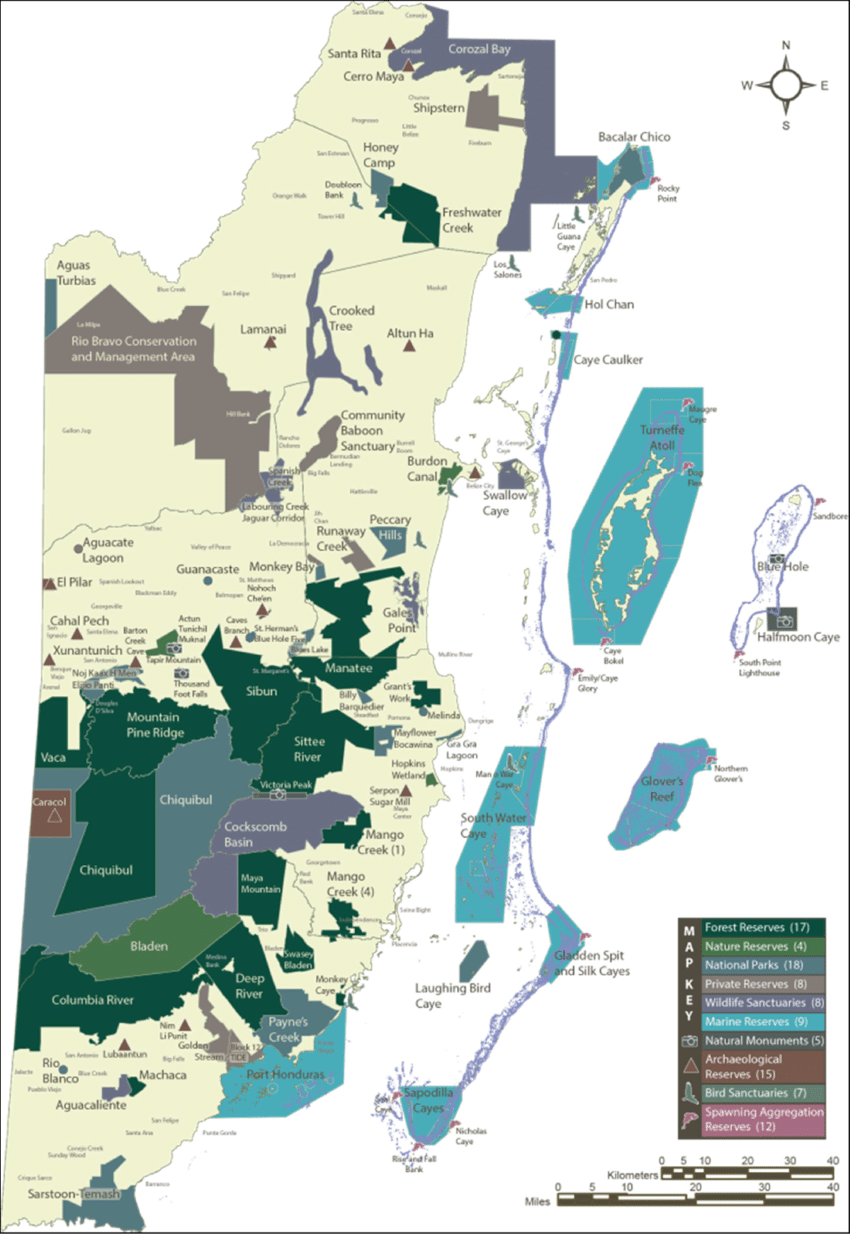Belize's 103
Protected AreasBelize is home to 103 protected areas. Presently, the Forest Department manages five categories of protected areas, those being National Parks, Nature Reserves, Natural Monuments, Forest Reserves and Wildlife Sanctuaries.
National Park
Any area established as a national park in for the protection and preservation of natural and scenic values of national significance for the benefit and enjoyment of the general public.
Nature Reserve
Any area reserved as a scientific reserve for the protection of nature be it biological communities or species and to maintain natural processes in an undisturbed state in order to have ecologically representative examples of the natural environment available for scientific study, monitoring, education and the maintenance of genetic resources
Natural Monument
Any area reserved for the protection and preservation of nationally significant natural features of special interest or unique characteristics to provide opportunities for interpretation, education, research, and public appreciation.
Forest Reserve
Any area reserved for the sustainable extraction of timber. Forest reserves are described in the Forest Reserves (Consolidated) Order.
Wildlife Sanctuary 1
Any area reserved as a nature reserve for the protection of nationally significant species, groups of species, biotic communities, or physical features of the environment requiring specific human manipulation for their perpetuation.
Wildlife Sanctuary 2
Similarly construed as “Wildlife Sanctuary 1”, except that established community use, including harvesting on the basis of a sustainable use plan, is permitted.

Activities Regulated in Forest Reserves
Camping
Persons (locals and foreigners alike) require permission to enter Forest Reserves for the purposes of camping. The applicable fees for camping permits: $2.50 BZD per person per night for nationals and $5.00 BZD per person per night for non-nationals.
Research
Research permits are issued for scientific research within the country. The Forest Department is responsible for vetting research to be done within forest reserves. Research is encouraged as it provides important information on the resources existing within our protected areas. Their management can then be improved based on the findings of the research. Camping in relation to an approved research permit requires a camping permit.
Camping for Prospecting
Prospecting for minerals (gold, dolomite, granite, sand and gravel, etc), involves the removal of natural elements from a specific area. Once the necessary permits from other Departments are issued, the Forest Department considers the approval of camping permits.

